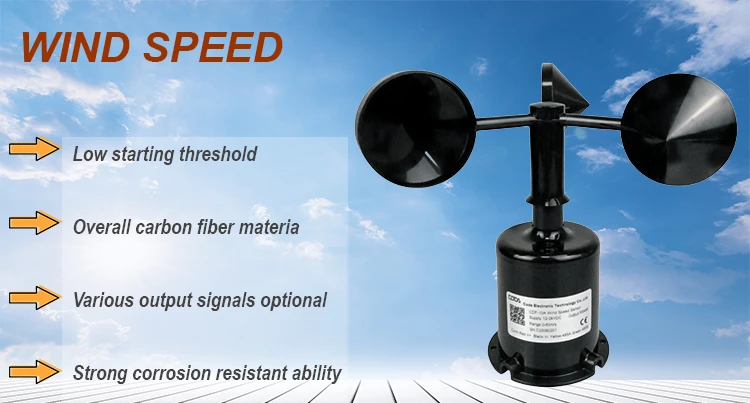
html
Wind Speed Measuring Instruments: Types and Applications
Measuring wind speed is crucial in various fields, including meteorology, aviation, and environmental studies. Different instruments are designed to accurately capture wind speed, each with unique features and applications. This article explores the most common wind speed measuring instruments and their uses.
1. Anemometers
Anemometers are the most widely used instruments for measuring wind speed. They come in several types:
- Cup Anemometers: Feature rotating cups that spin with the wind, with speed proportional to wind velocity
- Vane Anemometers: Combine a propeller with a tail vane to measure both speed and direction
- Hot-wire Anemometers: Use electrically heated wires where cooling by wind indicates speed
- Sonic Anemometers: Measure wind speed by detecting how sound waves are affected by moving air
2. Wind Vanes
While primarily used for determining wind direction, wind vanes can be combined with anemometers to provide comprehensive wind data. They are essential for weather stations and maritime applications.
3. Pitot Tubes
Commonly used in aviation, Pitot tubes measure airspeed by comparing static and dynamic air pressure. They’re particularly valuable for aircraft speed measurement but can also be adapted for wind speed measurement in certain conditions.
4. Lidar (Light Detection and Ranging) Systems
Advanced remote sensing technology that uses laser pulses to measure wind speed at various altitudes. Lidar systems are increasingly used in wind energy assessment and atmospheric research.
Applications of Wind Speed Measurement
Wind speed instruments serve critical functions across multiple sectors:
- Weather Forecasting: Essential for predicting storms and weather patterns
- Aviation: Critical for flight safety and operations
- Wind Energy: Used to assess potential wind farm locations and turbine performance
- Agriculture: Helps in crop spraying and understanding microclimates
- Construction: Important for crane operations and structural safety
- Maritime Operations: Vital for navigation and safety at sea
Choosing the Right Instrument
Selecting the appropriate wind speed measuring device depends on several factors:
- Required accuracy level
- Measurement range
- Environmental conditions
- Budget constraints
- Data recording needs
Modern instruments often combine multiple measurement capabilities and can connect to digital systems for data logging and analysis, making wind monitoring more efficient than ever before.
Keyword: measure wind speed instrument